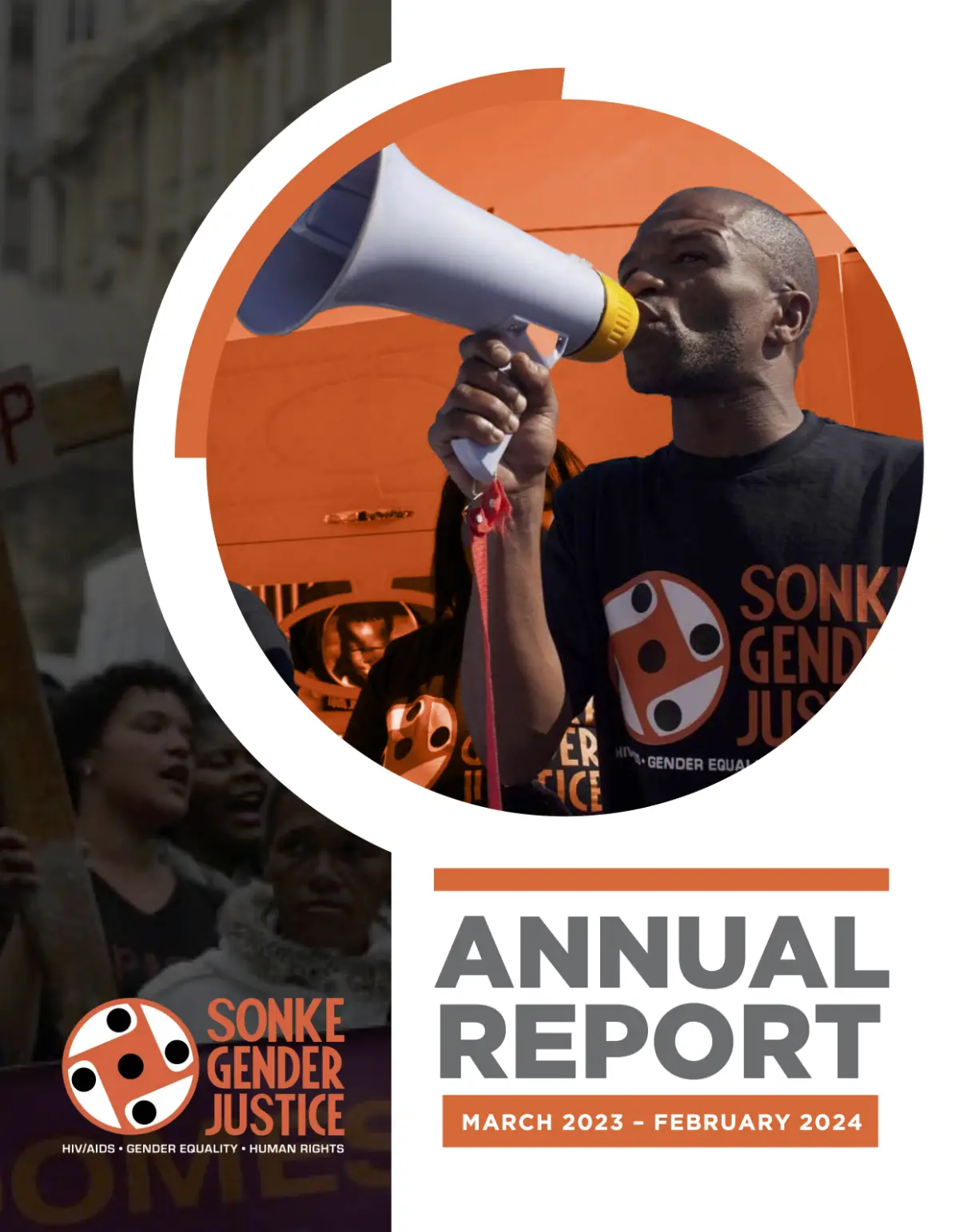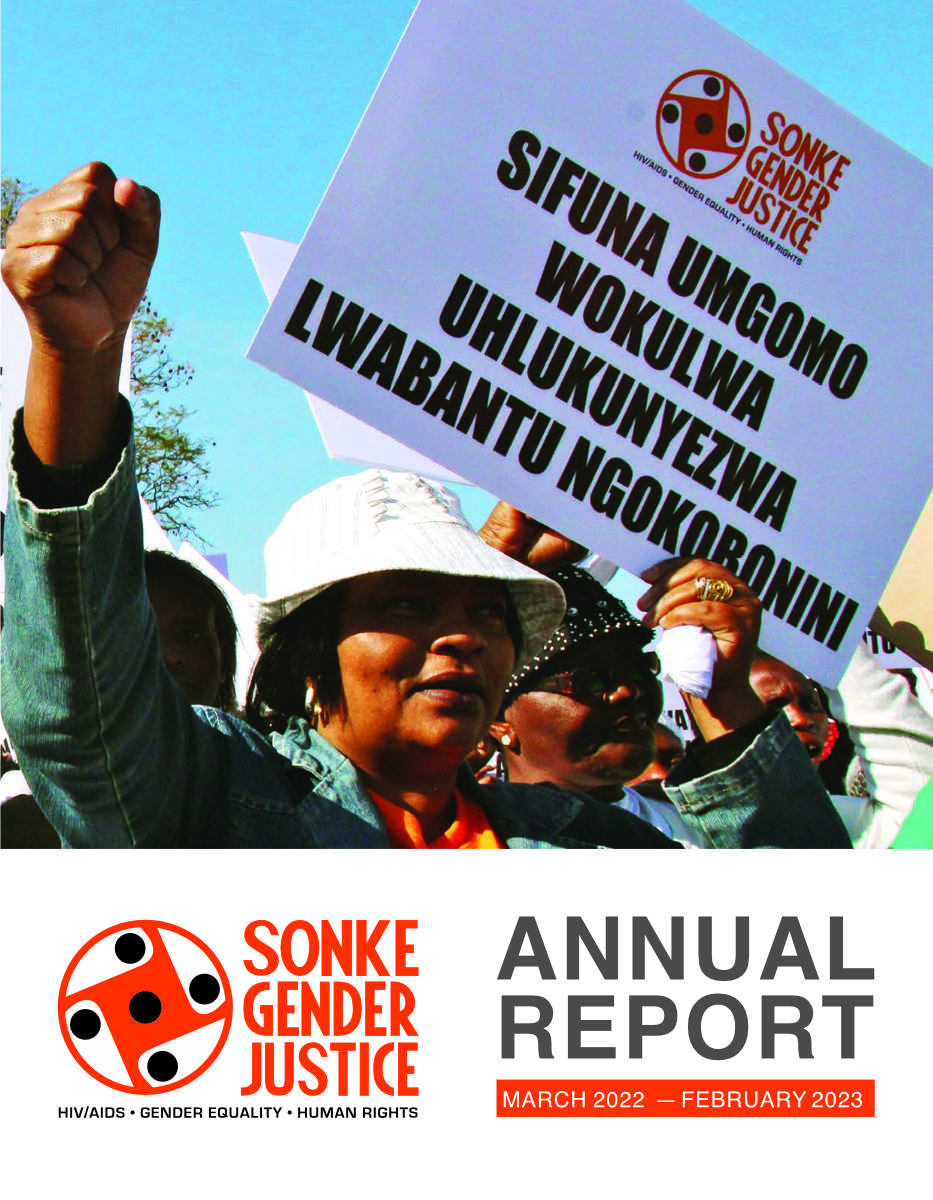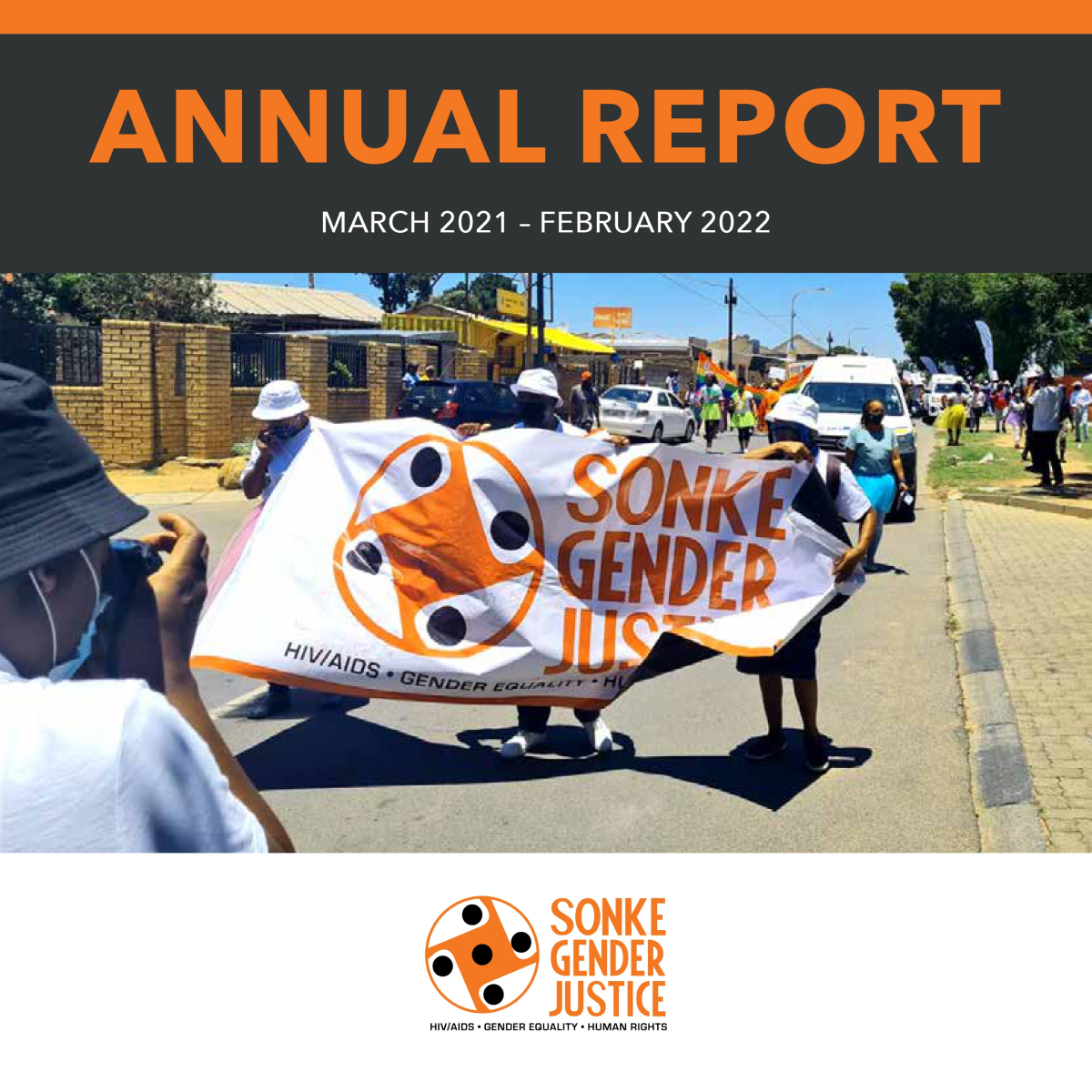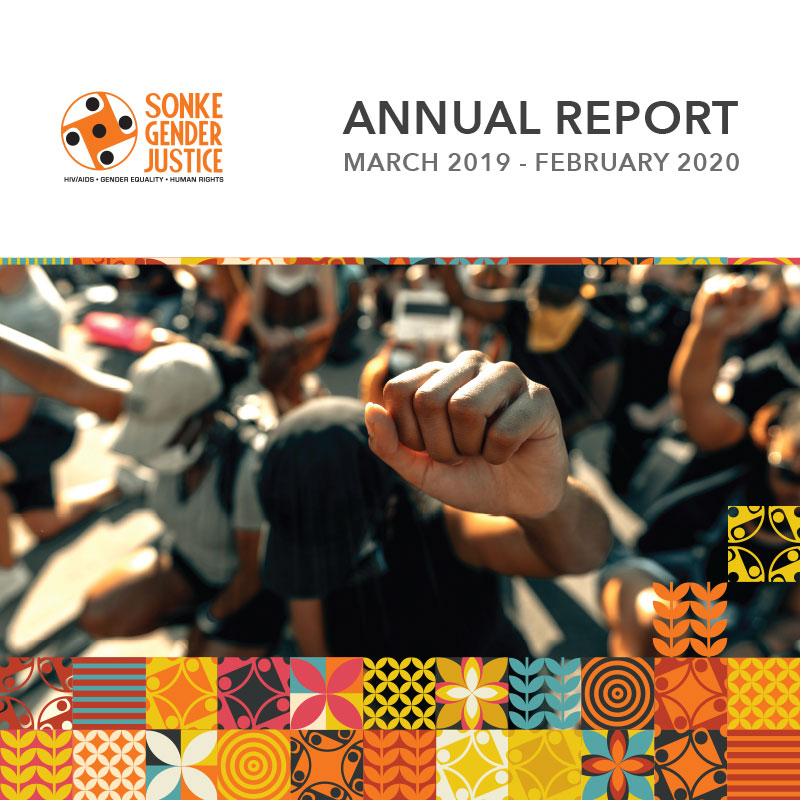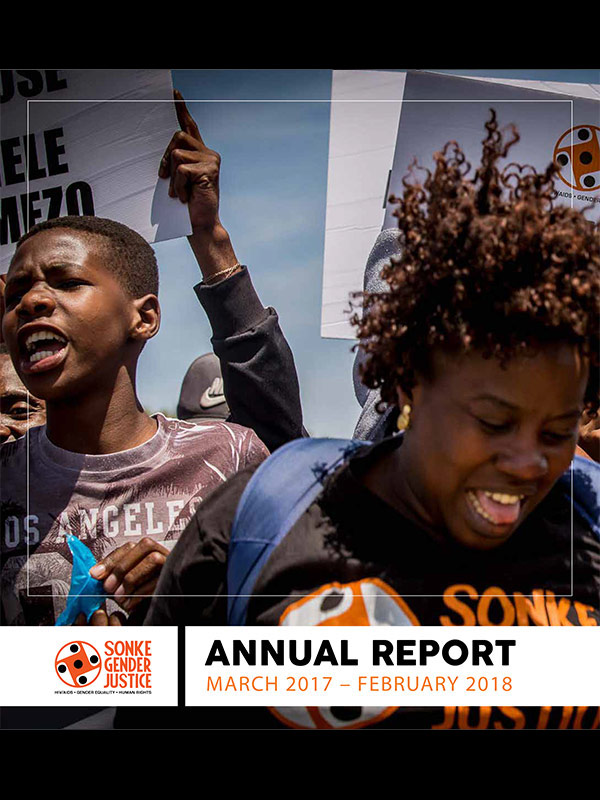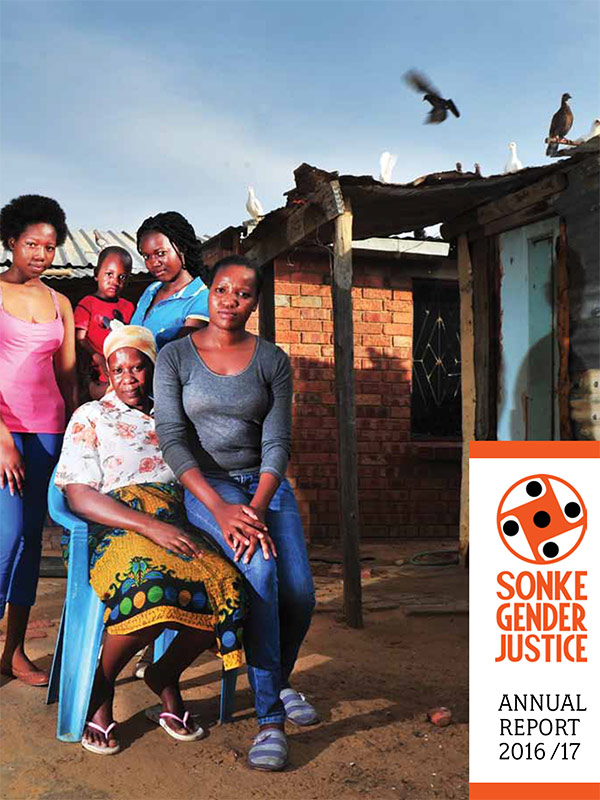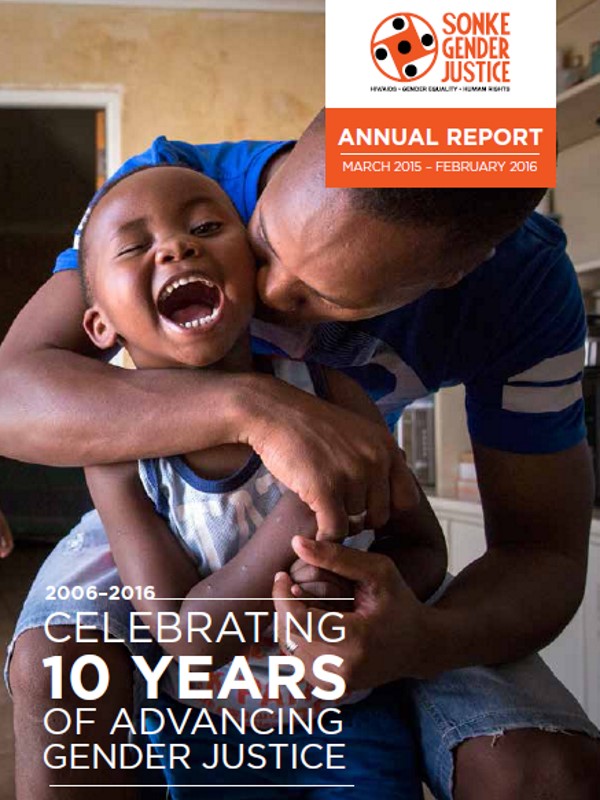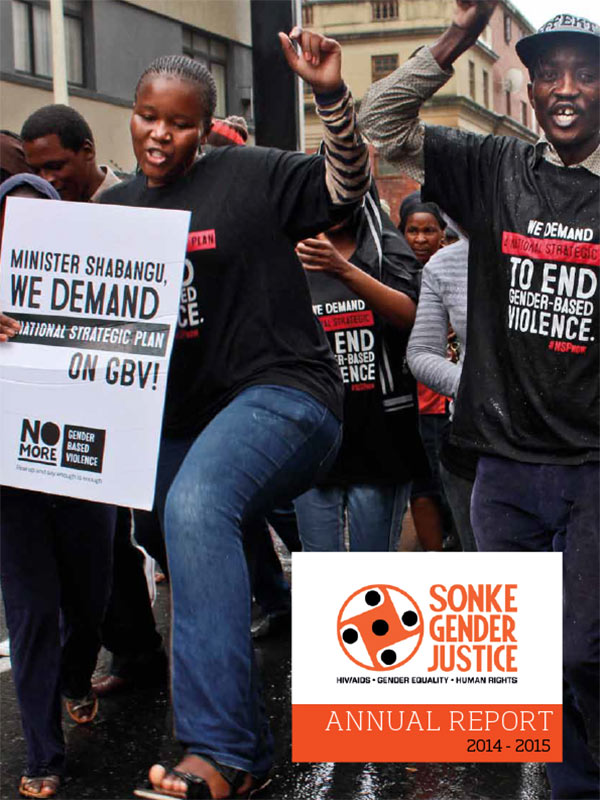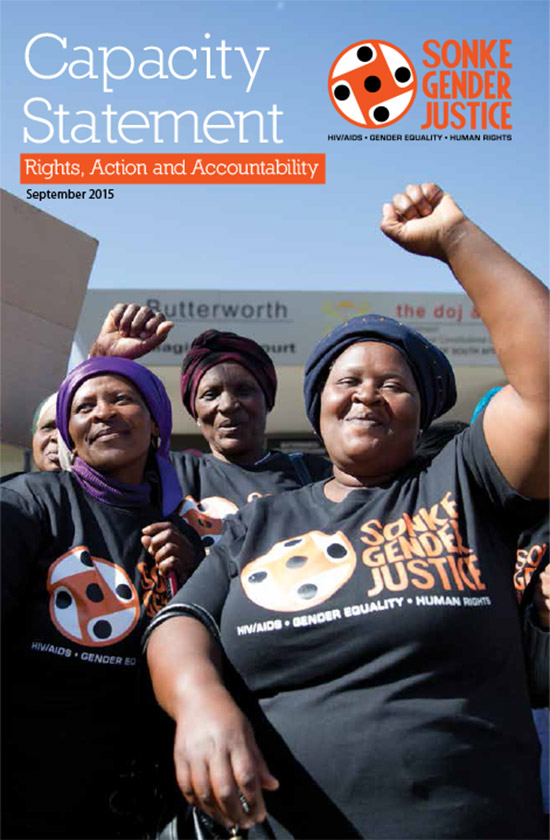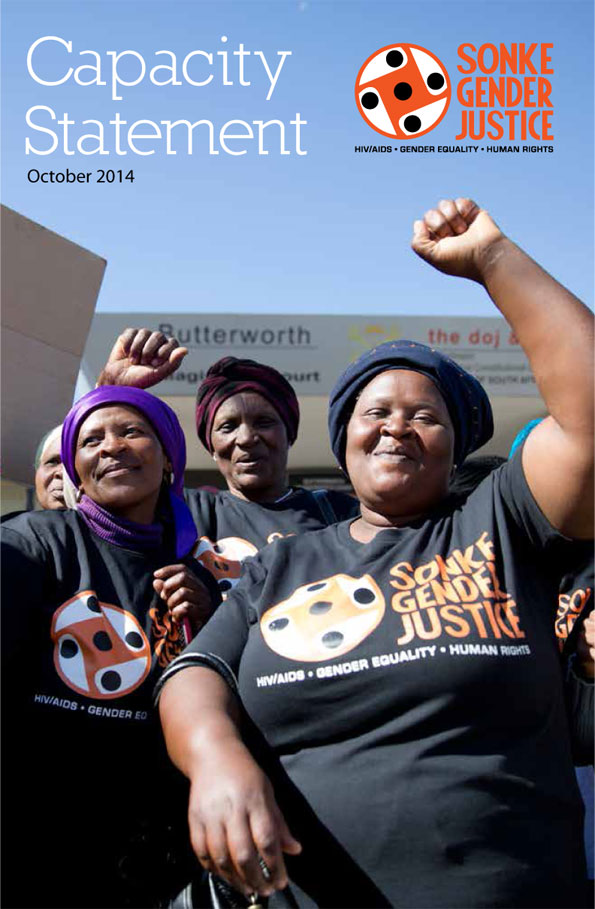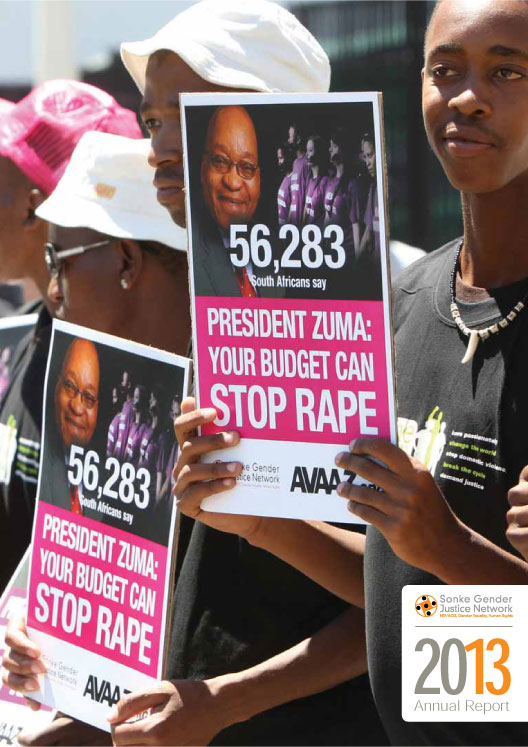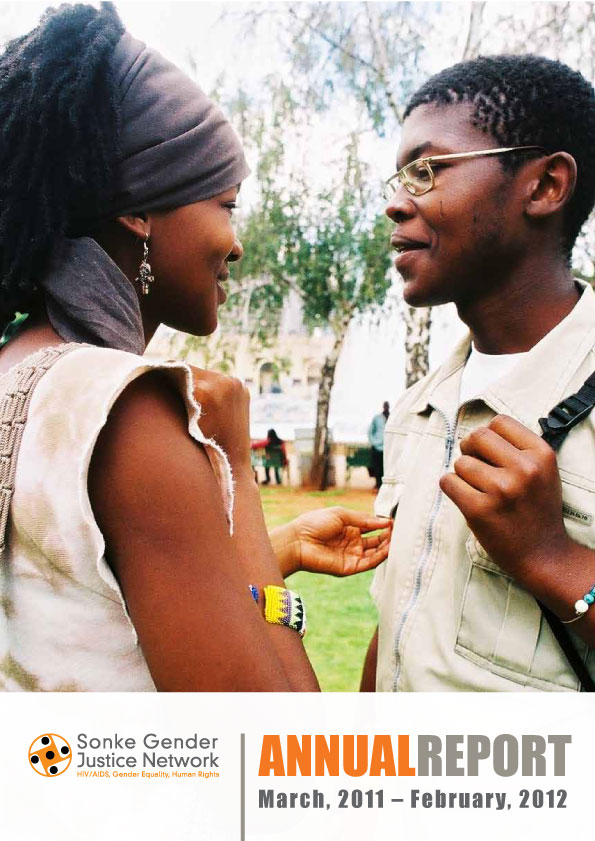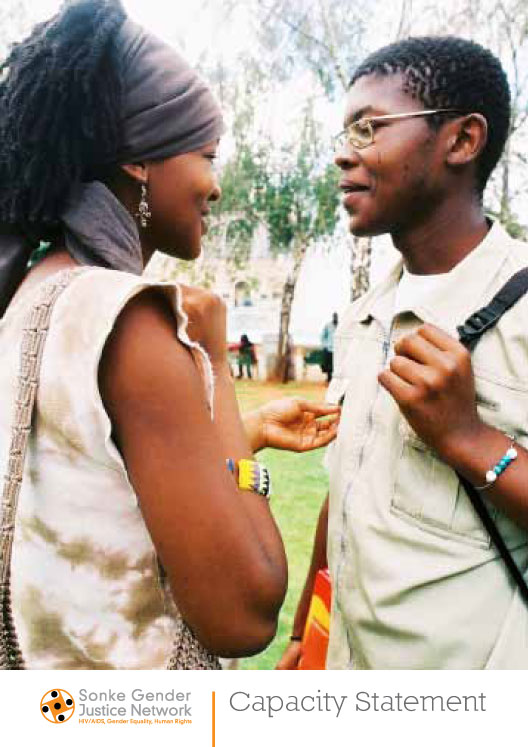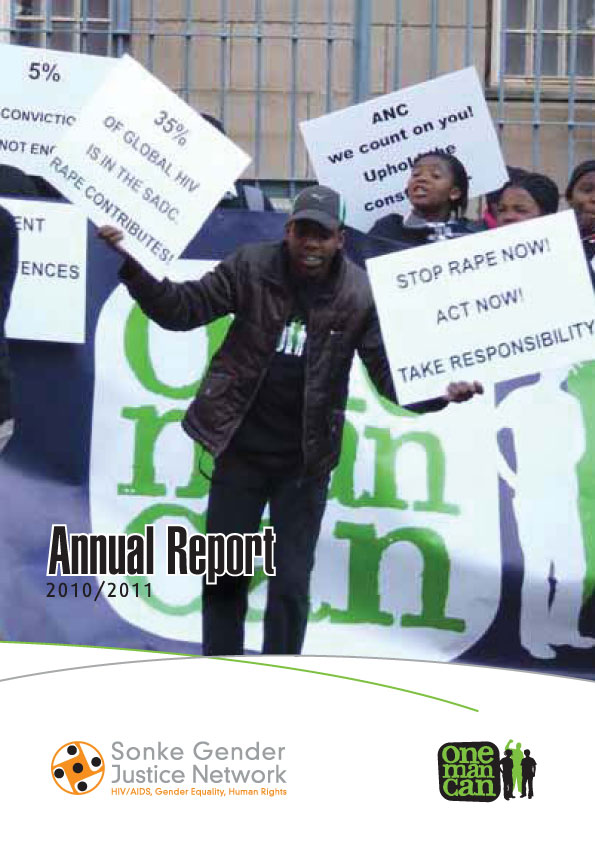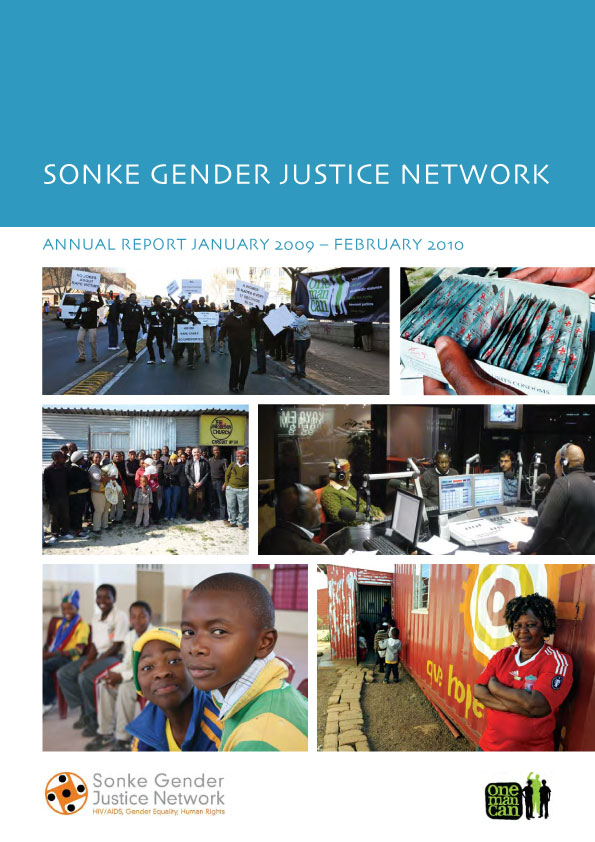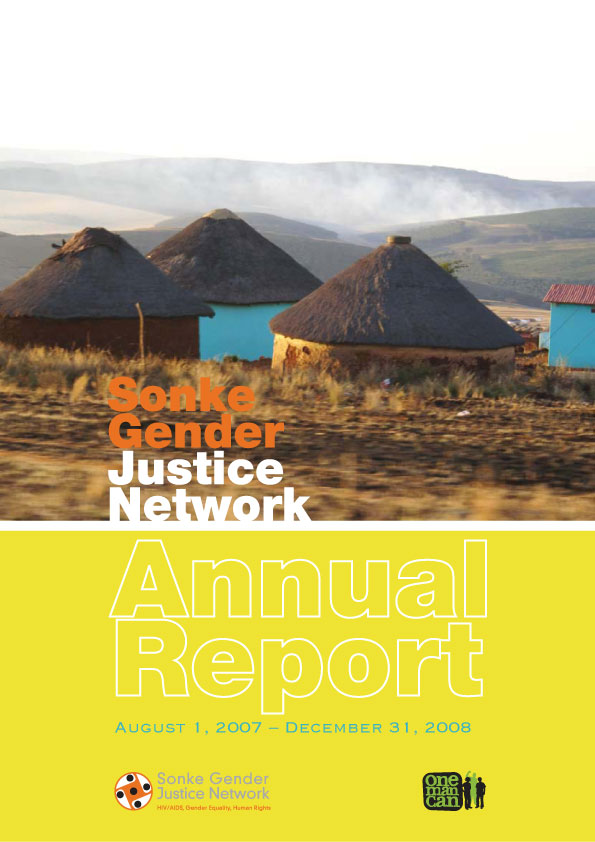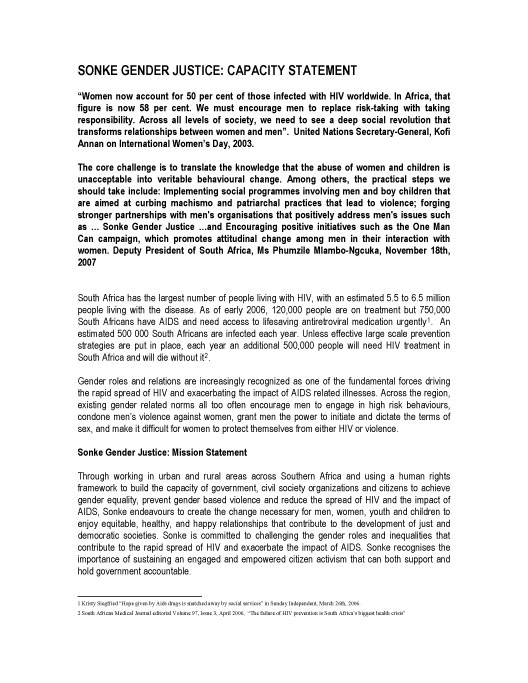From the desk of the Chairperson of the Board
Sonke has shown growth in the reporting period in the work that we are doing that seeks to contribute to gender transformation in the region. The year has been challenging in many respects since we had to navigate challenging moments and in the country. We have just emerged from the challenge of Covid 19 which set us back in many frontiers. It is evident that the declaration of the lockdown increased levels of violence against women and children exponentially. Many people faced mental health challenges and a significant number suffer long effects of Covid related illnesses.
According to a recent study by the World Health Organisation (WHO), violence against women (VAW), in particular, is one of the most widespread violations of human rights worldwide, affecting one in every three women in their lifetime, and often perpetrated by an intimate partner. A startling finding of the study is that, globally, 38% of all women who are murdered are murdered by their intimate partners, and 42% of women who have experienced physical or sexual violence at the hands of a partner had experienced injuries as a result (WHO, 2012). Compared to many countries globally, South Africa is ranked as a violent society. The country continues to fight the impact of institutionalised racism, sexism, xenophobia, exclusion, structural violence and other structural and socio economical factor which continues to undermine human rights, human development and positive social cohesion. In 2022 the Global Peace Index (GPI) indicated that the country is one of the most violent countries in the world and was ranked 118 out of 163, compared to 2018 where the country was ranked 38 out of 163 countries there is an improvement however in Sub-Saharan Africa the country is ranked 26 out of 44 and 13 out of 16 in Southern Africa (GPI, 2022).
The victim of crime survey (VCS) indicated an increase in violence against women and girls since 2018 and this is coupled with a decline in feelings of safety and trust in the criminal justice system. Women, Girls and LGBTIQ+ continue to face high levels of vulnerability each day (STATSSA VCS, 2020).
The SAPS crimes statistics indicate an increase in Rape and Sexual Assault cases for women 18 years and above between July and September (10590 and 1895) respectively in 2022 compared to (9556 and 1753) in July and September 2021. There were 989 Women murders in July 2022 which I an increase from 897 within the same period in 2021. There was also an increase in Assault with Grievous Bodily Harm (GVH) from 11824 between July and September 2021 to 13701 between July and September 2022. While GVH, Rape and Murder are driven by many factors, the main two factors are alcohol and drugs. Out of 13701 GVH cases, 4326 were related to excessive alcohol abuse and 162 drug use, about 1520 rape cases were also related to alcohol and 154 to drug use and 281 murder cases were related to alcohol and 21 to drug usage (SAPSCS, 2022). Many of the perpetrators of GBV cases are recognised and known to survivors and victims as intimate partners, -partner perpetrators include strangers, acquaintances, colleagues, family members, teachers, peers and other non-romantic relationships (e.g., service providers) (Devries et al, 2014).
The Out report on hate crimes against LGBTTIQ+ persons reported that 55% (1171/2130) Over half of those surveyed (55%) expressed fear that they might experience discrimination due to their sexual orientation. Over 15% (96/638) have been physically violated and 9% (59/638) have been sexually violated. A significant proportion of 41% (873/21300 of those surveyed knew of someone who had been murdered due to their sexual orientation.
In South Africa GBV is exacerbated by many structural and social drivers such as gender inequality and is deeply rooted in patriarchal norms and cultural practices. Furthermore, GBV is exacerbated by economic, ideological, religious, technological, social, political and environmental factors (Field et al, 2018) GBV includes physical, economic, sexual, and psychological abuse as well as rape, sexual harassment and trafficking of women for sex, and sexual exploitation. Economic abuse, whereby financial resources are controlled and withheld, has a significant impact on the lives of women and children; often leaving them with no choice but to remain in abusive relationships. Furthermore, when women leave abusive relationships, financial abuse often continues through the withholding of child maintenance (Machisa et al, 2017).
While the South African government have acknowledged GBV as one of the increasing crisis which the country has to address and this was evident with the development of a National Strategic plan on Gender-based violence and femicide. The development of the National Strategic plan on Gender-based violence and femicide yielded little impact as many of the socioeconomic and structural drivers of GBV remain unaddressed and they continue to contribute to increased GBV rates.
Furthermore, many cases of violence against women, girls and LGBTIQ+ persons remain unreported as the perpetrators might be related to the victim/survivor. The reported cases are also not investigated and prosecuted in time, and this end up being closed without the victim and families receiving justice (Myeiwa et al, 2017). Apart from unreported cases, collection of data in particular data around unreported cases and cases of violence against LGBTIQ+ remains a challenge and this has a profound impact on how GBV and hate crimes are addressed (Meer and Muller, 2017) South Africa is the first country to constitutionally protect against discrimination based on sexual orientation and the fifth in the world to legalise same-sex marriages. The legal ‘protection’ provided to LGBTIQ+ individuals is unmatched compared to the rest of the continent. However, a disparity exists between the protection provided by the law and the lived experiences of individuals. Same-sex marriages are recognised through the Civil Union Act of 2006. In 2022 the country passed the Civil Union Amendment Act of 2021 which ensures that marriage officers will not refuse to solemnise same-sex unions.
To end hate crimes, in 2018 the country introduced the Prevention and Combating of Hate Crimes and Hate Speech Bill is aimed at addressing concerns of racism, xenophobia and related intolerance. The bill was created after the rising number of hate crimes and hate speech in the country. The bill explicitly expresses its intentions to protect against racism, sexism and homophobia and while this is highly progressive, the bill has still not been passed.
The feminist movement in South Africa continues to play a strategic role in strengthening democracy, gender equality and sustainable development. Recently the movement has been vocal and formed coalitions such as the national shelter movement which consists of organisations which provide safe accommodation to survivors of GBV. The movement was also instrumental in the development and adoption of the National Strategic plan on Gender-based violence and femicide.
Globally 27% of Women and Girls aged 15% and above have experienced (physical or sexual) from an intimate partner. Statistics South Africa, Crimes against women, an analysis of the phenomenon of GBV and femicide report indicates that 1 in 5 women has experienced physical violence from their partner. The majority (50%) of cases of violence against women were committed by someone close to them such as Spouse or intimate partner 15%, Friend or acquaintance 22% and a relative or other house household member 13% see (figure 1) below (STATSSA 2019). The latter challenge mirrors many experiences in the region compounding the work of Sonke through MenEngage Africa. To this end, we continue to work with partners on three key campaign; ending FGM, ending Child Marriages and GBV. While we have registered promising promises on the above, more work still needs to be done. We are up to the task. We remain committed to advance Gender Transformative approaches in our quest to advance gender equitable relations in our region.
We thank donors who continue to show faith in our interventions and support the work. This is an important investment contributing towards achieving the goals of agenda 2063 and SDGs.
We thank our staff who are passionate and committed to the work. Sonke would not achieve its objectives without these valiant efforts.
We thank our partners who walk this journey with us and are always willing to collaborate.
Special thanks to fellow board members for all the strategic leadership.
Asanteni sana
Karabo van Heerden
Chairperson

